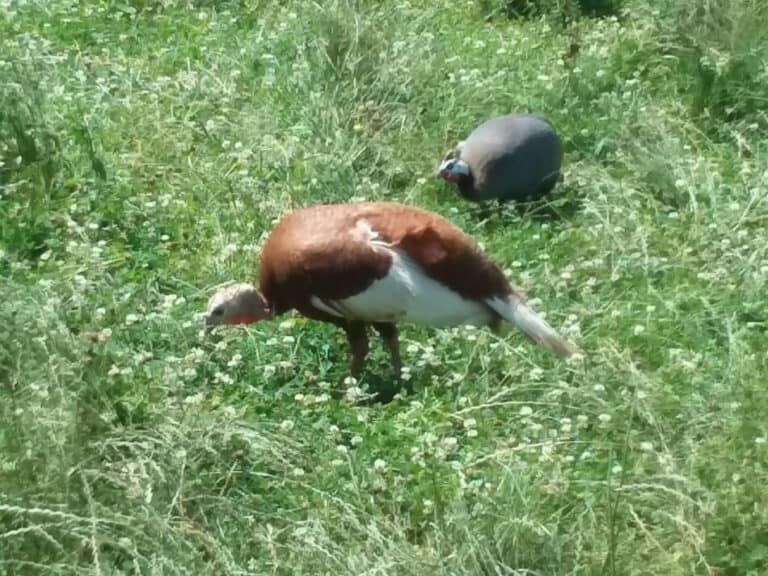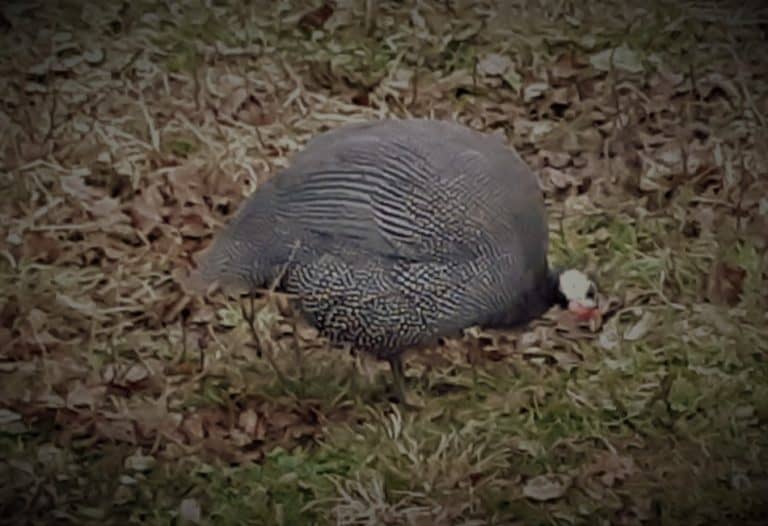4 Backyard Birds That Love To Eat Ticks
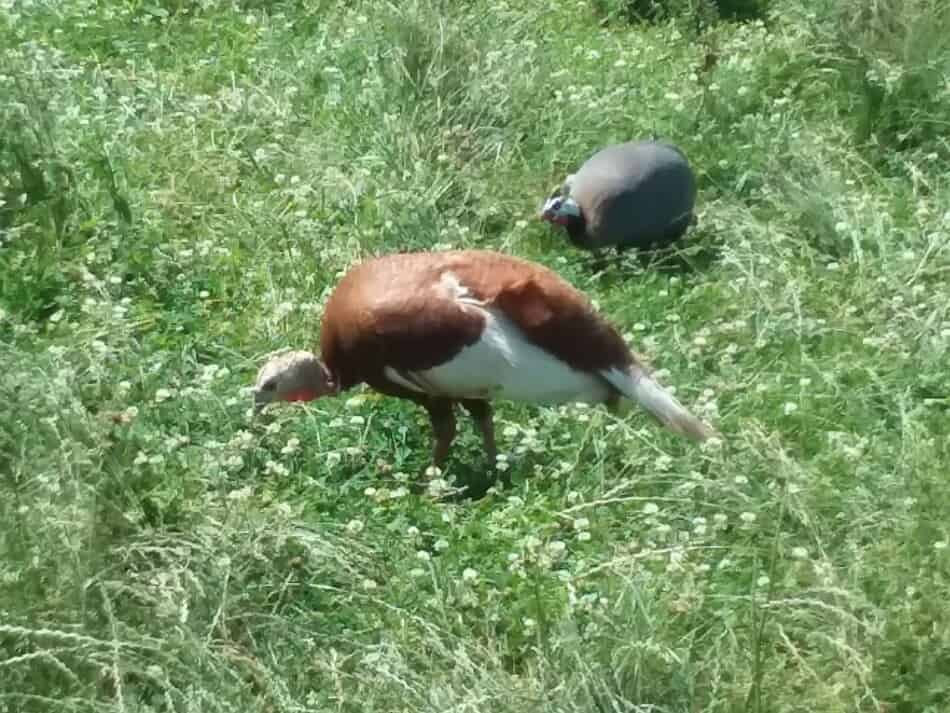
Worried about having ticks in your backyard? I love to walk around outside and don’t really mind bugs, but ticks are a different story!
How do you reduce or eliminate your tick problem without using insecticides?
Backyard birds that will eat ticks are ducks, guineas, chickens and turkeys.
Good news, you’ve got some great options for non chemical tick patrol! Each of these birds has special characteristics that will make one better suited for you than the others.
Here’s an overview of why each bird is a great tick eater and how they would benefit you.
| Tick Eater | Pros | Cons |
| Ducks | Easy to fence Do not scratch Egg producer | Messy with water |
| Guineas | Low maintenance Will range for ticks | Loud Hard to contain |
| Chickens | Easy to find/get Will range for ticks Egg producer | Harder to fence Will scratch |
| Turkeys | Can handle taller grass | Must be heritage bird |
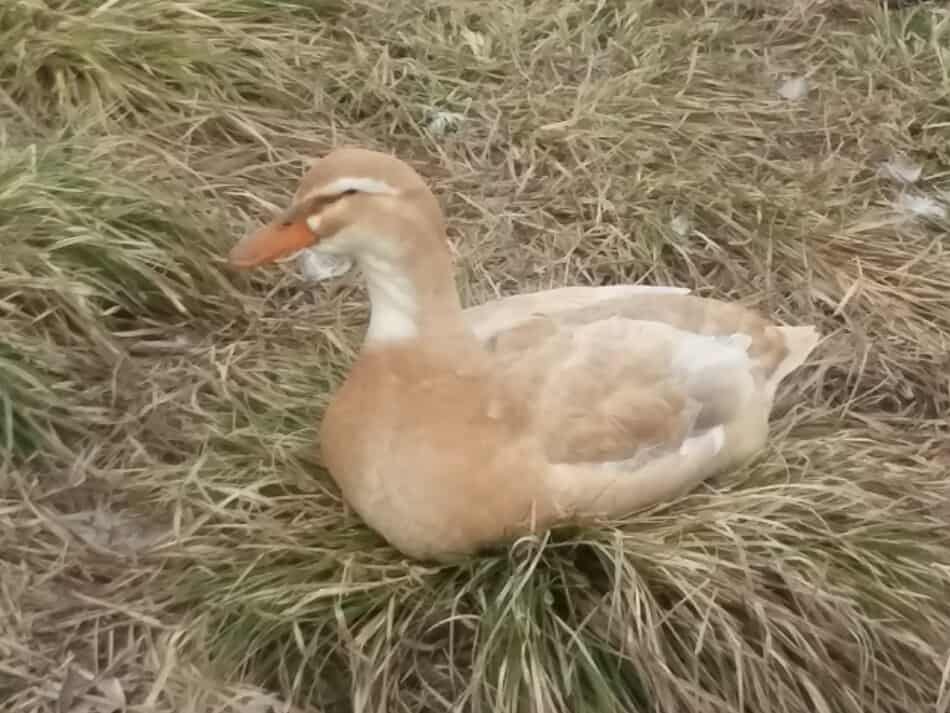
Ducks will eat ticks
For some reason, ducks get left off of the tick eaters list and I’m not sure why. Ducks are great bug eaters, so it only makes sense that they are interested in ticks as well!
Our ducks zoom all over the place, dibbling here, there and everywhere looking for bugs to snack on and ticks are no exception! Check out my article 16 Duck Breeds For Eggs And Meat for breeds that will work for you.
If you live in either the city or a rural area and can raise certain types of poultry, it would certainly be worth considering to do so. I live in a city and used to raise ducks, and they kept the area around my vegetable garden squeaky clean of insect invaders, including ticks. Other friends had chickens and guinea fowl, and they had no problems with ticks on their property or in any adjacent fields or woodlots.
David Smith, Wide Open Spaces.com Animals That Eat Ticks Are Especially Beneficial To Outdoorsmen And Women
One of the most overlooked bonuses of having ducks on bug patrol is that they will happily go to places where the other birds won’t, like muddy spots.
The other tick eaters on the list would all rather stay dry, not the duck. She’ll dibble around in all manner of spots, meaning you get full area tick eating coverage.
The second huge advantage ducks have over the other birds in this group, is that ducks are so easy to fence into or out of an area.
Domestic ducks grow fast enough and big enough, even most of the smaller breeds, that they will be too heavy to fly out of your fence.
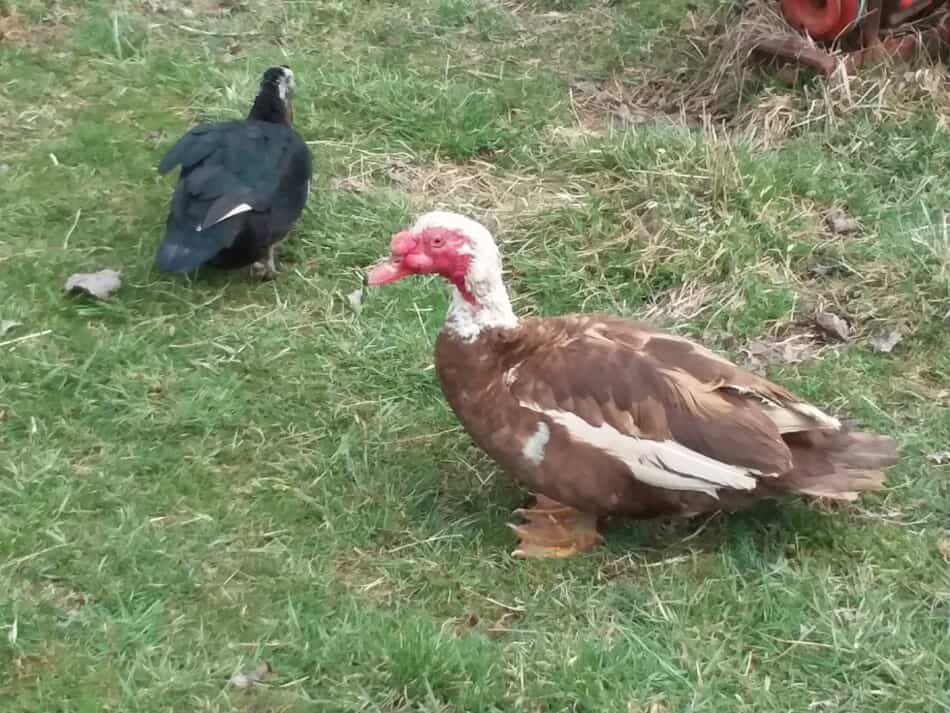
A third advantage of using ducks as bug patrol is that ducks to not scratch up your flowers or grass.
Ducks will walk over plants and will go in the flower beds for bugs and shade, but they do not have the destructive scratching ability of chickens.

Guineas are famous tick eaters
Guineas will help you control your ticks! Guineas seem to be more of a brave forager than chickens.
They are willing to travel a bit further from the barnyard to find ticks and other bugs to eat.
If you are looking for a bird that will cover more area on tick patrol, consider the guinea as your top choice.
Be aware, guineas come with some unique characteristics that may make them more annoying to you than they are helpful!
Guineas are high strung, (not pet material), loud and hard to contain. If your birds must stay on your property or in a small area, guineas are not for you!
We have a good number of guineas, they wandered in to our yard and have stayed. This was years ago.
The other side of the guinea story is that the person who actually bought these birds doesn’t have them anymore!
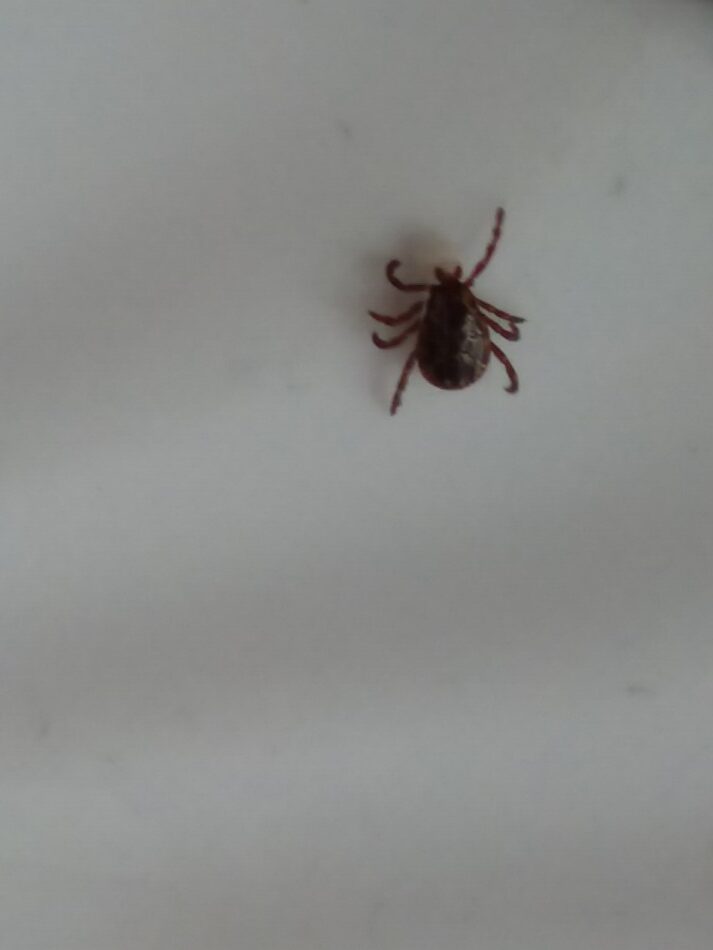
Guineas are loud, they make great alarm systems! They are also seemingly addicted to running out into the road.
If you live close to the road, don’t get guineas. They’ll all end up flattened.
If you are considering guineas, check out my article on Cost To Purchase And Raise Guineas.
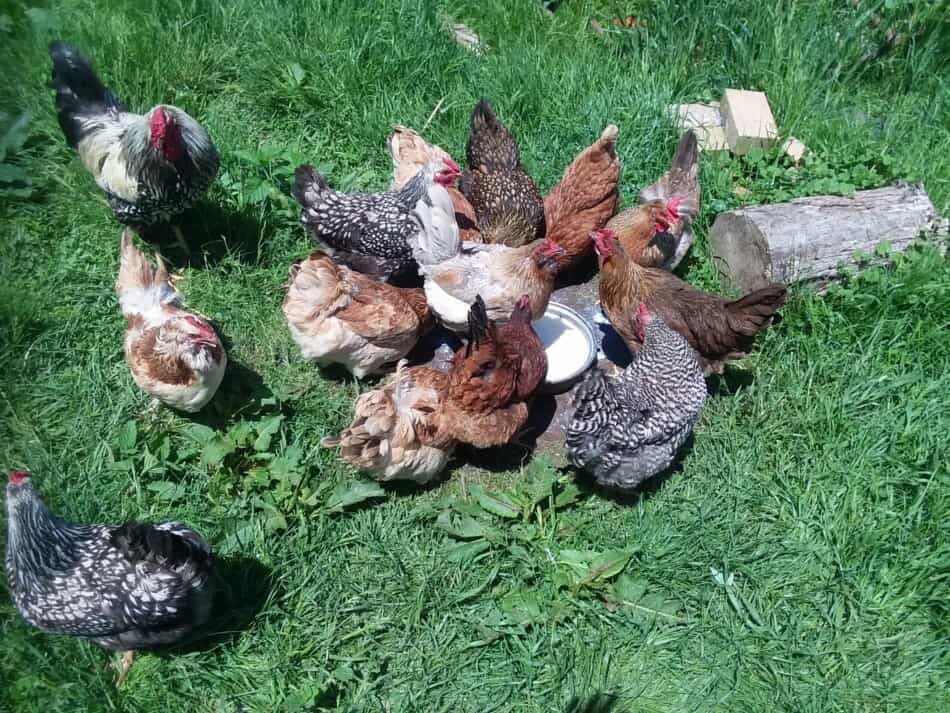
Free range chickens are tick eaters
Chickens love to eat bugs! Of course, for your flock to eat the ticks in your yard or surrounding areas, they will need to be loose (more popularly called free range).
Chickens will do their best to eat any and all bugs, including ticks that come into their pen, but not many ticks will do that!
For your chickens to be effective tick eaters, the hens must be able to seek out the ticks.
In case you didn’t know, the way a tick finds a person or an animal to climb on to is the tick climbs to the top of a blade of grass and sits there, ready to grab on to what ever is the next live thing to brush by.
It could be a deer, your lamb, your dog or you.
This is why your bird patrol, chickens or otherwise has to go to the ticks! Penned up chickens can not do their job!
A note on chicken breeds and ranging/tick eating ability: generally speaking, the lighter breed chickens are going to be better at zooming around and finding food, but they will also be more capable of getting out of your fence.
The heavier breed chickens are going to be easier to contain, be more limited rangers and need more supplemental feed.
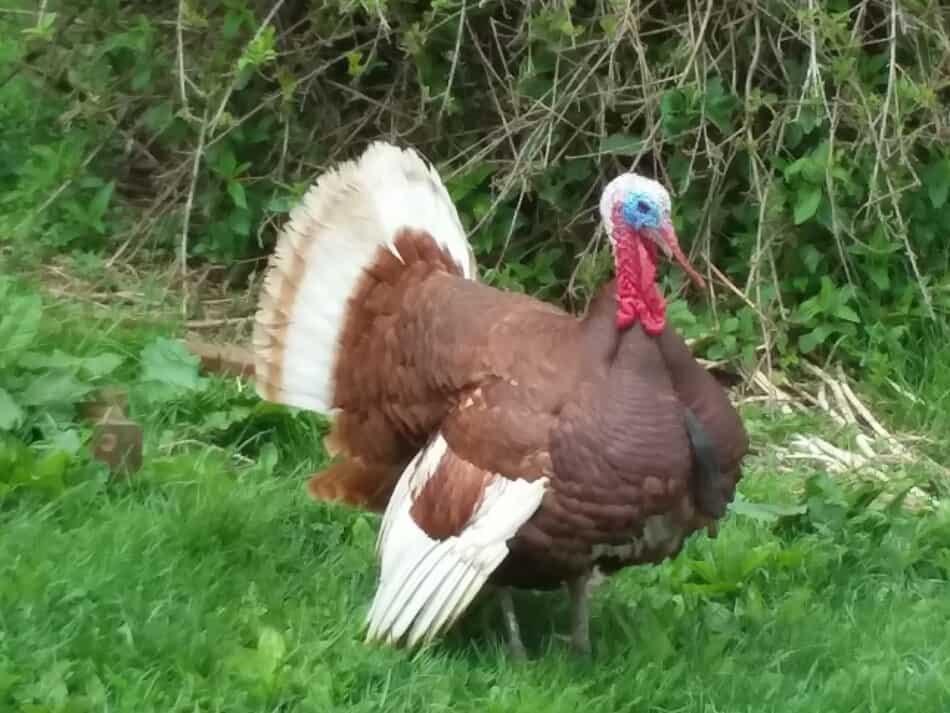
Turkeys will find and eat ticks
Turkeys are wonderful tick eaters. Turkeys have the advantage of being taller than the rest of the birds on this list.
Being tall makes them the ideal bird to search through the taller grasses and weeds that would keep other shorter birds out of the area and away from the ticks.
Turkeys are an overlooked, but very useful bird for eating bugs as well as grass.
I’m referring to adult breeding stock turkeys, not broad breasted white birds that are being raised for market.
The market birds are great at growing quickly but not great at seeking out ticks. These large birds will need more feed than they can get from paroling around for bugs.
If you are thinking of turkeys for tick control, get one of the heritage breeds. They have a smaller body and can forage for their food.
Here’s an article I wrote on Breeds Of Turkeys to get you started.
Birds that won’t help with eating ticks
Not all birds are great at eating ticks. Here are some birds not on the tick eaters list and why they don’t make the cut.
Geese
What about geese? Geese are actually plant eaters, not bug eaters. So if you wanted a bird to eat down your lawn, geese would be an option. For ticks, not so much.
Broilers
Broilers are the super fast growing meat chickens that are also called Cornish Cross.
They would certainly eat any tick they happened to find, but broilers do seek out bugs like egg laying chickens.
The broilers spend most of their day eating and resting, not actively hunting down bugs.
Broilers have to be a bit lazy to support their fast growth. Lazy birds are not travelling around your grass and poking around enough to be considered good tick eaters.
Immature birds
Young birds (birds ordered in from a hatchery, not with their mom) of any type are not going to be great tick eaters. They will try, of course!
They will be too limited in their ability to be effectively patrolling all of your tick areas.
Young birds will be too small to be safely let out of their pen long enough to eat all of your ticks.
The main concerns for young birds are from predation (cats, mostly), the need to get enough feed for the day or sudden changes in weather.
Once these birds get to mature size or close to it, they will be wonderful at hunting down ticks.
Until they get some size to them, young birds will not make too much of a difference in your tick population.
Tick eating birds: our experience
Even though we have all of these birds, we still pull the occasional tick off of the dogs and we did find a few of the sheep with ticks when we were finishing up shearing.

Overall, we hardly ever find a tick on us or the dogs. I regularly take the dogs all over the farm on walks.
We go all over the place, not just staying on the driveway or in shorter grass and we go through the tall stuff, as well.
One thing I have noticed is if you have an area that the poultry can not get to but has grass, that will be more likely to have ticks.
We have a just outside of the door dog run for our dogs, mostly used by the Border Collie. She likes to go outside and “spy” on the current happenings around the farm.
She has more ticks than either of the other dogs. The only reason I can think of is that she spends time in that outdoor kennel and love to run after any bird that “dares” to peck around in her run!
It’s mid summer now and I haven’t found a tick on the dogs in weeks.
We always have a few, at least, at the beginning of the growing season, but they seem to be eaten back for now.
If you are looking to drastically reduce the number of ticks that you and your animals are facing, consider getting one of these birds.
If you have birds already, let them out of their pen to do some work for you!
